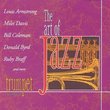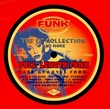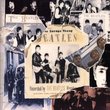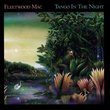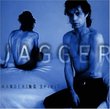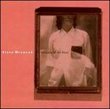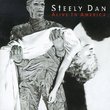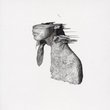| All Artists: Pete Townshend Title: White City Members Wishing: 0 Total Copies: 0 Label: Atlantic / Wea Release Date: 10/25/1990 Genres: Folk, Pop, Rock, Classic Rock Styles: Singer-Songwriters, Singer-Songwriters, Album-Oriented Rock (AOR) Number of Discs: 1 SwapaCD Credits: 1 UPCs: 075679047328, 022925239228, 075679047342, 766485215574 |
Search - Pete Townshend :: White City
 | Pete Townshend White City Genres: Folk, Pop, Rock, Classic Rock
|
Larger Image |
CD DetailsSimilar CDsSimilarly Requested CDs
|
Member CD ReviewsReviewed on 10/18/2009... I always considered "White City" to be Pete Townshend's best solo album. It's the perfect blend of hard rock songs to ballads and Pete does them equally well. He has great musicians backing him up, too, which makes all the difference!
CD ReviewsHis last Top 40 album Anyechka | Rensselaer, NY United States | 08/02/2004 (5 out of 5 stars) "This album came out in November of 1985 (a month before my sixth birthday), and was the last Top 40 album Pete put out, as well as the last Top 40 album by any of the remaining three former members of The Who. The third track, "Face the Face," was also the last hit single by any of them; it reached #26 in America, the same position the album reached on both the American and British charts. (There's also a film of this album, with some songs that weren't included on the album, but I haven't seen the film yet; the main character is named James, a grown-up version of Jimmy from 'Quadrophenia.') Though it's billed as a novel, which might seem pretentious to some people, and has a very Eighties (i.e., overproduced) sound to it, it's very tight and consistent. It's also a concept album, about a middle-aged man having some difficulties in life coming home to the place he grew up and feeling disillusioned by what has happened to the place in spite of good childhood memories, and concept albums just aren't considered hip anymore. My faves on here are "Face the Face" (so loud, thumping, and energetic, particularly the long and tense build-up in the beginning), "Give Blood" (which also has an amazing musical build-up before the lyrics begin), "Brilliant Blues" (the only song on here where he uses his trademark high notes; it shows he takes care of his voice instead of constantly showing off with a tenor/low-range falsetto just because he can), "Crashing by Design," "White City Fighting" (co-written with David Gilmour), and the closing track, "Come to Mama" (which has a beautiful sweeping flourish of instrumentation as it winds down towards the end). This is an album that shows how to celebrate middle age and turning forty musically properly. Instead of still singing about the same old things or writing about lusting after hot women, he's writing and reflecting on getting older, becoming disillusioned with the place he came from, not being so young anymore, and dealing with romantic rejections. Too bad more artists can't write mature albums like this when they get older instead of living in the past and still writing the kind of songs they did when they were in their twenties." A Masterpiece - Don't buy it if... Another Floyd | The LeftCoast: Occupied California | 01/01/2000 (5 out of 5 stars) "This CD is a masterpiece. Don't buy it... if you want more Who music. I'm not even sure it's rock. The music - or "novel" as it's subtitled -- defies genre. (Liner notes state that White City is a film written by Pete Townshend.) Townshend always refused to be confined by traditional rock music format, as demonstrated by his fondness for "rock operas," and quirky Who songs.The whole of it is a fine composition, with tracks linked lyrically and musically. It's best listened to in its entirety. With each listen you'll hear something new. (I can say this even after having worn out a cassette of same.) Townshend layers the music, and fills many "unused spaces" with surprising sounds (in a much more disciplined way than, say, Beck). He uses vast and unusual combinations of instruments, such as the harmonica and horns in "Face the Face." He uses repetition, and strings the listener through 2-minute intros. Lyrics contain their own layers of meaning and word craft that come to light over time.This "album" elevates Townshend to a level of compositional artistry that most musicians will never see... largely because they don't even know it's there."
|

 Track Listings (9) - Disc #1
Track Listings (9) - Disc #1